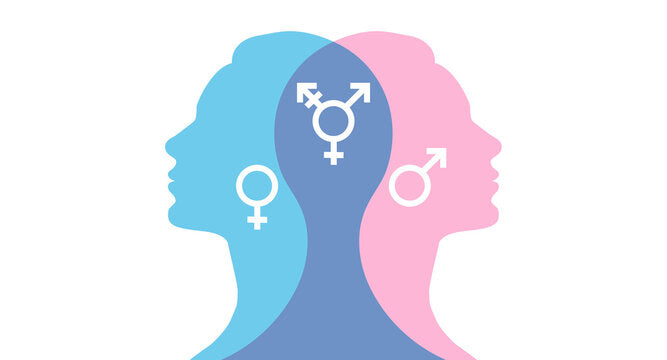In the grand scheme of the English language, pronouns may seem like inconspicuous, unassuming words. Yet, these little linguistic heroes play a vital role in our daily communication. Proper pronouns are a spotlight to allow us to convey respect, inclusivity, and a fundamental understanding of gender diversity.
Pronouns are the unsung heroes of the English language. "He," "she," "they," and "it" are examples of words we use to refer to people or things. For most of human history, these pronouns were straightforward, directly corresponding to an individual's perceived gender. However, language, much like society, is fluid and dynamic. As we continue to expand our understanding of gender, the traditional binary system of "he" and "she" has expanded to become more inclusive.
Now, in addition to "he" and "she," we have "they," "ze," "ey," and a host of other gender-neutral pronouns. These reflect a growing recognition that gender is not simply a binary, but a spectrum encompassing a fluid rainbow of identities.
Why Pronouns Matter
Pronouns matter for several reasons, each of which contributes to a more respectful and inclusive society.
- Respect and Dignity: When we use the correct pronouns for someone, we acknowledge and respect their identity. Misgendering (using the wrong pronouns) can be hurtful and invalidating for individuals whose identities don't conform to the traditional binary.
- Inclusivity: Gender is a deeply personal and diverse aspect of identity. Recognizing and using a variety of pronouns helps create an inclusive environment where everyone feels seen and valued.
- Language Evolution: Just as our understanding of gender evolves, so does our language. Embracing new pronouns keeps our language relevant and reflective of the society we live in.
- Breaking Stereotypes: Gender-neutral pronouns challenge stereotypes and rigid gender roles, fostering an environment where individuals can express themselves authentically.
- Normalization: Using gender-neutral pronouns helps normalize and destigmatize gender diversity. It teaches us that there's no one "right" way to be a man or a woman, and that's a message we all can benefit from.
A Brave New World of Pronouns
With an understanding of why gender pronouns are important, let's explore some of the pronouns that have emerged to meet the diverse needs of our ever-evolving society.
- They/Them: Singular "they" has been in use for centuries, but it's now being widely adopted as a gender-neutral pronoun for individuals who don't identify strictly as male or female.
- Ze/Hir: "Ze" and "hir" are alternatives to "he" and "she," providing gender-neutral options for people who don't feel comfortable with traditional pronouns.
- Ey/Em/Eir, Xe/Xem/Xirs, Ver/Vir/Vis, Te/Tem/Ter : These pronouns are more recent additions to the dictionary, offering further gender-neutral alternatives.
- Ask: Some individuals prefer "ask" as a pronoun. This choice underscores the importance of asking people about their pronouns if you're unsure.
Using Pronouns Correctly
It's essential to use pronouns correctly, and it's equally important to create an environment where people feel comfortable sharing their pronouns. If you're unsure of someone's pronouns, simply ask! Most people will appreciate your effort to respect their identity.
In conclusion, gender pronouns are not just words but potent symbols of recognition, respect, and inclusivity. They're a testament to the ever-evolving nature of language and society, reminding us that we are all part of a diverse and beautiful human tapestry. So, let's embrace this evolving language and use pronouns to promote a more understanding, empathetic, and welcoming world. After all, it's the little things that often make the biggest difference.



